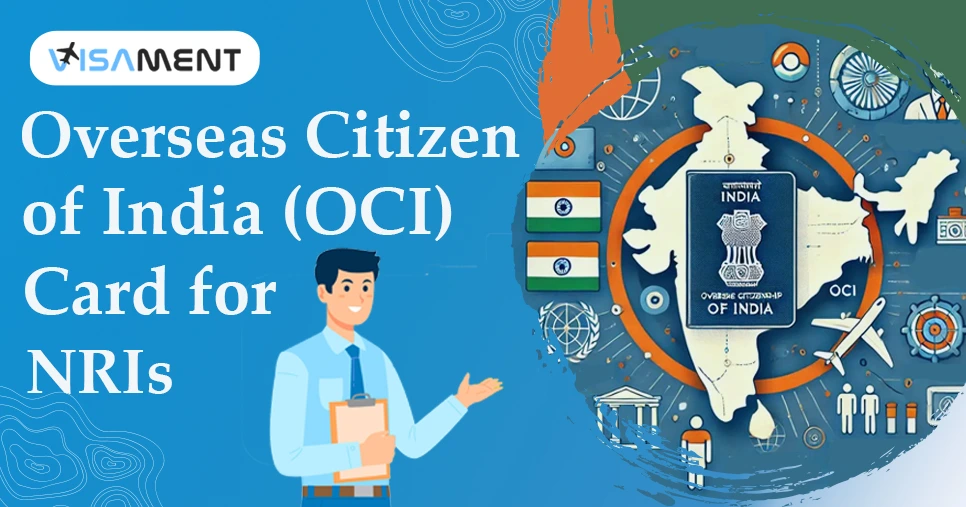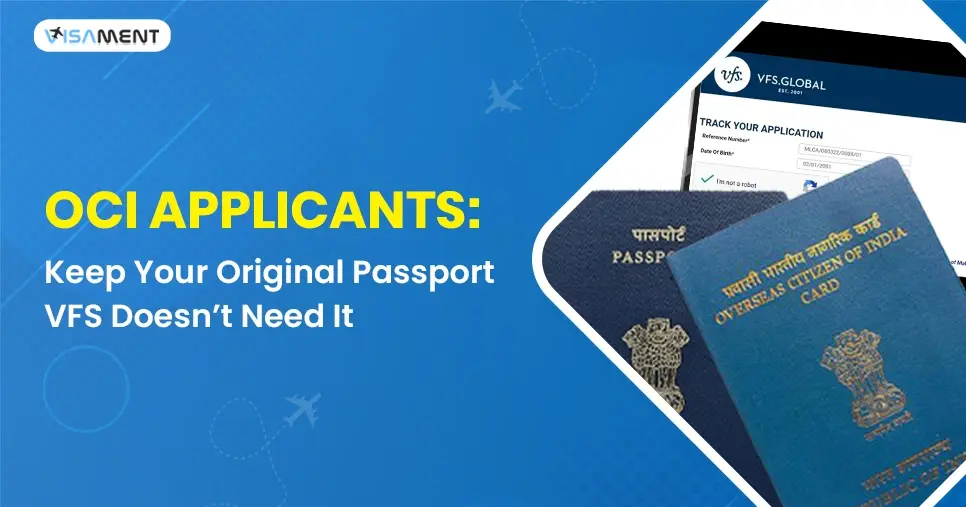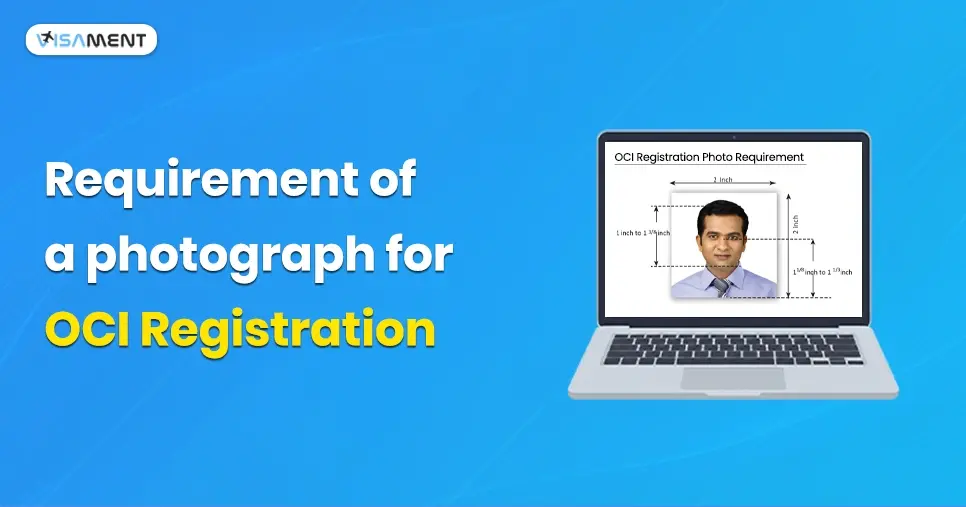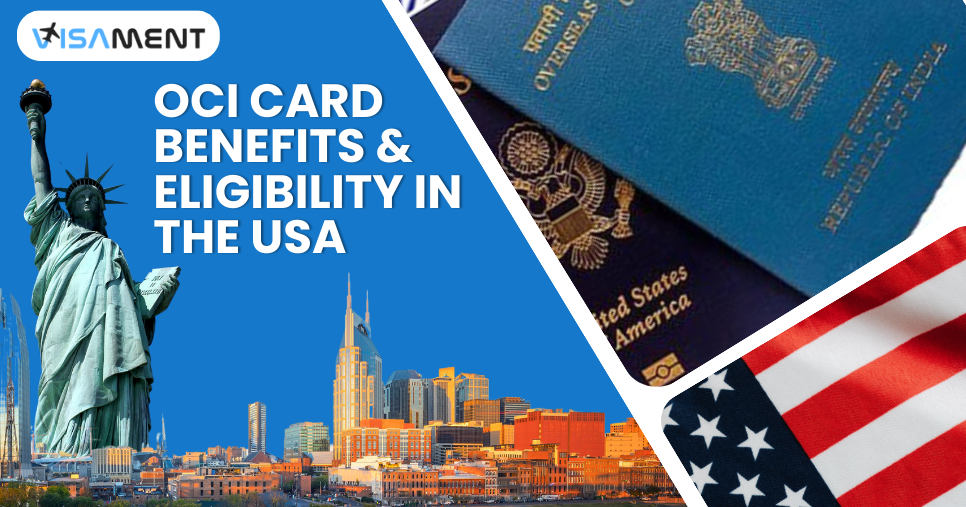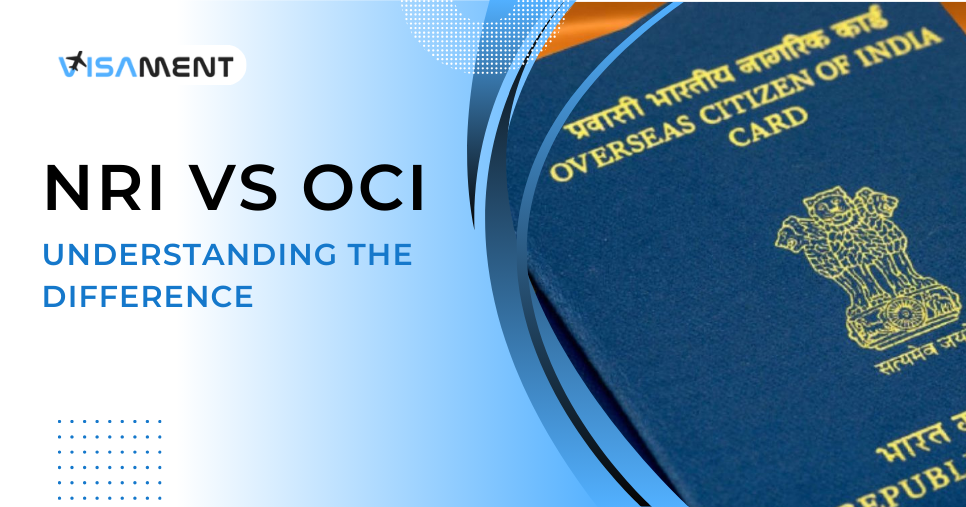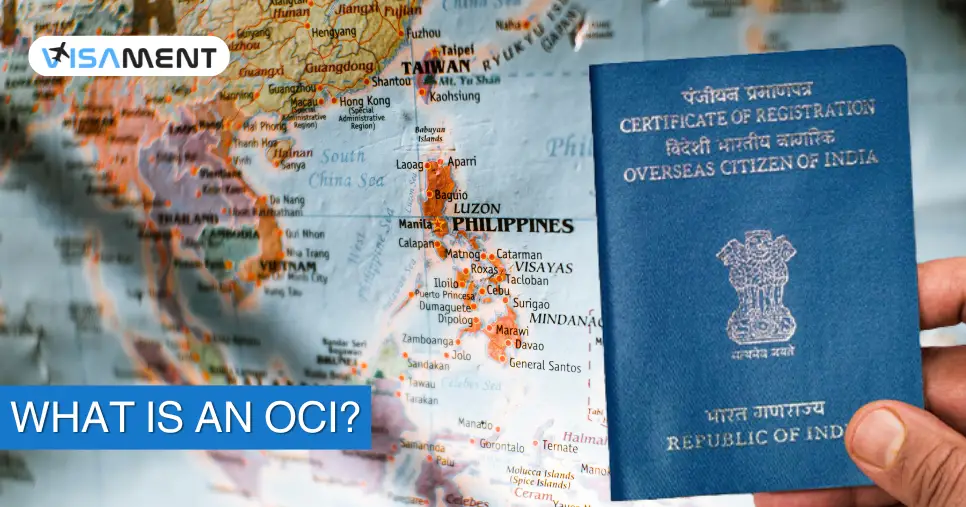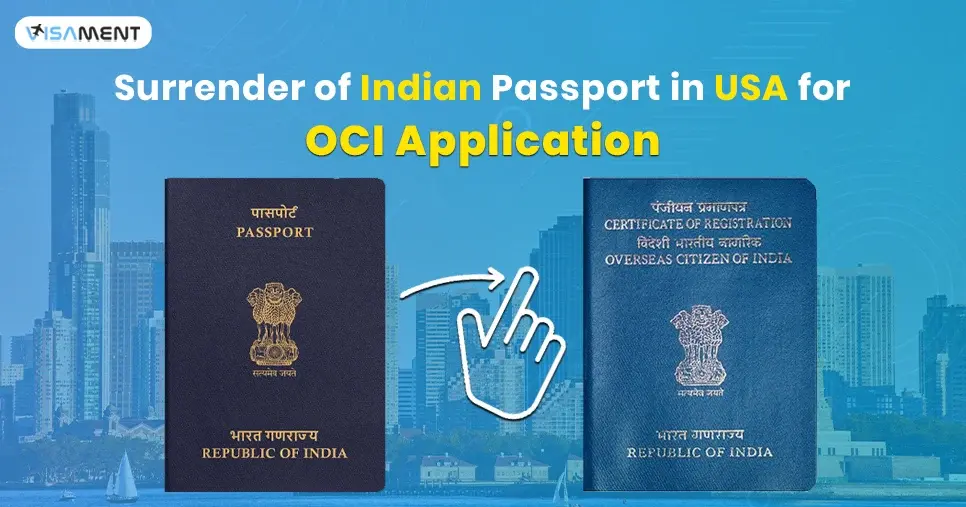The Overseas Citizen of India (OCI) card for Non-Resident Indians (NRIs) is a major identity worldwide. It serves as proof of their connection with India and provides several benefits and privileges that are otherwise not available to foreign nationals. So, if you are an NRI seeking an OCI card, then it is essential to maintain the bond with India, understand what OCI is and its benefits, and know the eligibility criteria.
In this comprehensive guide, we will talk about the OCI card, the benefits of OCI card, the steps to fill OCI card application form, and many more. So, stay tuned with us if you are a non-resident Indian and want to get an OCI card.
What do you Mean By OCI Cards for NRIs
Knowing the benefits of OCI card, the application process, and more, it is crucial to learn what an OCI card is for NRIs. When talking about the Overseas Citizens of India card then it is a document that showcases the Indian government's initiative to build a stronger relationship with the Indian diaspora. It is a document for NRIs of Indian origin and allows them and their spouses to live, work, and study in India for an indefinite period. The OCI card is a bridge for overseas citizens living in India to partake in various aspects and activities of Indian life. Apart from this, many people think OCI offers dual citizenship, but it does not. OCI is a form of permanent residence and offers specific rights with some expectations.
Benefits of the OCI Card for NRIs
There are plenty of advantages of the OCI card for NRIs, all of which aim to make their time in India as comfortable as possible. The advantages include the freedom to enter India without a visa, the ability to work and trade there, and the same rights as Indian citizens regarding property ownership, except for agricultural land. The same domestic airline rates and admission costs to national parks, museums, and other public locations as Indian citizens are likewise advantageous to cardholders. OCI cardholders are also eligible for a driver's license, a PAN card, and other kinds of identification, and they can open special bank accounts in India and engage in financial markets. However, it's essential to be aware of the advantages and disadvantages of OCI card status to make informed decisions about its use and benefits.
Eligibility Criteria for the OCI Card
One must have been a citizen of India after January 26, 1950, or have grandparents who were citizens when the Indian Constitution went into effect to be eligible for an OCI card. Spouses of Indian nationals or OCI cardholders, as well as their children and grandchildren, are eligible. There are some restrictions, though, like the need that the marriage has lasted for at least two years. Furthermore, anyone who has worked in a position about a foreign state's security or who has served in a foreign military is not eligible for an OCI card.
- No embassy visits required
- Eligibility check & document guidance
- Instant application submission
Steps to Apply for the OCI Card
Plenty of people think filling out an OCI application form is typically a hard process. If you think in the same way, then follow the steps to apply for the OCI card for NRI.
- Fill Online Registration
- Upload a photograph and a signature.
- Take a printout of the successfully submitted application form and attach the original photograph and signature in the given spaces.
- Submit the OCI application form with supporting documents at the Embassy counter.
- Pay the fees at the Embassy counter to complete your application process. After that, you can also check your OCI card Status Online.
Key Difference between OCI vs. PIO Card
Plenty of citizens think that the PIO and OCI cards are the same, or some want to know the difference between OCI and PIO cards. So by keeping everything in mind, we will a
| Point of difference | PIO | OCI |
|---|---|---|
| Who is eligible to apply? |
|
|
| Visa requirement |
|
|
| Validity of visa |
|
|
| Registration with FRRO |
|
|
| Benefits |
|
|
| Indian citizenship |
|
|
With the help of the above-mentioned table, you will get to know the difference between OCI and PIO. Next, we will check out the things to consider before becoming a Non-resident Indian.
Things to Consider Before Becoming NRIs

In this blog section, we will discuss the 6 things to consider before becoming Non-Resident Indians. It will help NRIs in different ways, such as saving money, staying connected with their relatives, and many more.
- Bank Accounts: Before becoming an NRI must convert your existing bank accounts into an NRI bank account such as NRO, NRE, or FCNR.
- Insurance: If you have any running insurance plan, then you must check whether the policies will be beneficial or not if you continue the plan.
- Existing investments: If you have any existing investments like mutual funds, PPF accounts, and others, then you must check all of them and take the necessary steps.
- Bank Locker: If you are going to India, apply for an OCI card for NRI, and have a bank locker in a foreign land, then you can continue to use it. Apart from this, if you are never going to come back, then we suggest you give it up; otherwise, you have to pay annual charges.
- Credit Card/Debit Card: It is essential to convert your cards to international cards. Additionally, if you have many cards, then you must try to give them up, or you will have to pay fees.
- Mobile Phone: To stay connected with your relatives living in a foreign land mobile phone is important, and to make a call, activate international roaming on your phone.
Choose Visament for OCI card for NRIs
By going through this post on the OCI card for NRIs, readers will get to know various things related to the Overseas Citizen of India card. Above, we mentioned what is OCI card for NRIs is, its benefits, how to apply, the difference between an OCI card and a PIO card, and many more. If you are still facing any issues related to the OCI card for NRIs, then we strongly recommend that you hire Visament. It is one of the best immigration service providers and has an experienced team that helps applicants in various ways. Including filling out an error-free OCI application form, Speedy approvals, inexpensive prices, 24*7 client support, and many more.
Additionally, by choosing this service provider, you can also get help with passport-related services, Aadhaar cards, OCI, NRI Certificate, PIO, and others.
Frequently Asked Questions
Yes, US citizens with an OCI can stay in India.
Yes, an Overseas Citizen of India can inherit property in India.
Yes, Overseas Citizens of India can open Non-Resident Indian accounts in India.
The OCI cardholder can stay in India for a lifetime with multiple entries.
Yes, you can work in India if you have an Overseas Citizenship of India card.
Yes, a US citizen can permanently live in India by obtaining permanent residency.
Yes, OCI cardholders have to pay income tax in India on the income generated in the country.
The new NRI rule in India has reduced the tenure from 182 days to 120 days for all NRIs whose annual income is more than Rs 15 Lakhs.
